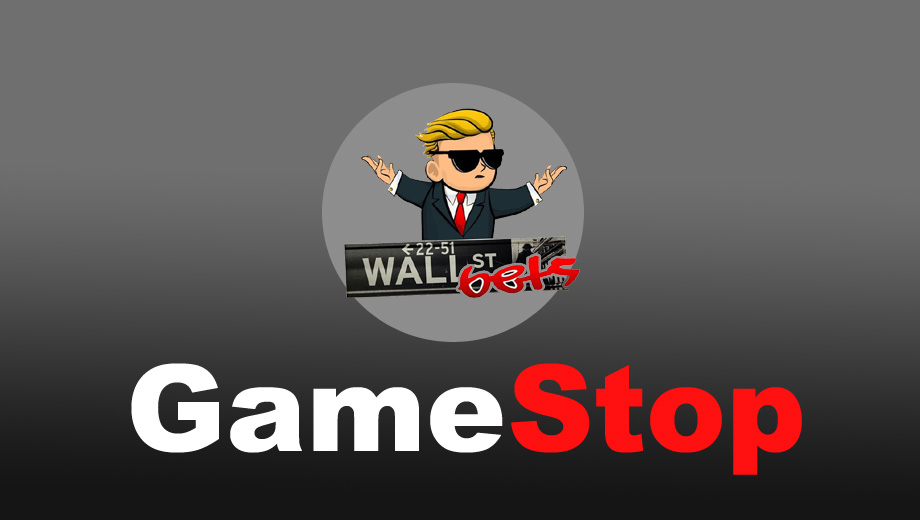Even if the stock market is not your cup of tea, you might still have heard about the stocks in recent days. Especially about the stocks of GameStop, which is a retailer of video games, has gotten in the news due to an apparently extraordinary situation where masses of individual, small investors worked in a manner that hurt firms that were extremely well-funded. Additionally, GameStop is not the only stock targeted by these individual small investors of the subreddit WallStreetBets, which is the initiator of this.
Due to the clouds of confusion that surround the financial system for a lot of people, the unusualness of this situation itself is also a barrier to working out what is going on here. Following is the breakdown to help you understand it better.
What Happened To The GameStop Stocks?
Behind this entire scenario is a lot of complicated financial weirdness to explain here. Still, to simplify the story to its bare bones, the gist of the situation is this: A group of people on the platform Reddit determined that if they all invested in meme stocks, not only could they make some cash, but also be able to troll hedge funds. A hedge fund is a type of firm which is set up so that one individual can utilize the money of a group of people to manipulate the market.
So, how did the Redditors achieve this? They did it by adding an additional wrinkle to the stock market strategy, which was apparently not expected by Wall Street. Essentially, users from the subreddit WallStreetBets invested in stocks that were marked as “shorts,” a kind of investment that is also referred to as “short sellers” by the investors. To sum it up, The Wall Street types bet their money thinking GameStop’s stock would keep on falling, which it did not.
You might recognize this Wall Street logic, which basically states “buy low, sell at high,” which works out well when investing from a long position. As explained by Business Insider, a short position is taken by a short seller when an investment borrowed from a stock lender is sold at a higher price only to purchase it back later at a lower price. Sell the stock at a high price, buy it back at low, but you still have to return it back to the lender.
For Example, you short a random company, say A at a share price of $100, and the next day it goes to $10. You pay the cost of $10 from your own pocket to purchase back the stock and return it back to the lender from whom you borrowed it, and now you have $90 as your profit. Shorting of stocks is risky at the same time as the shares still have to be returned to the original lender, even if the prices go up instead of going down. In the same situation, if the stock went up to $120 instead of falling to $10, then the short-seller would have to bear the loss of $20 from his own pocket to buy back the stock and return to the lender.
In addition, lenders can also demand the borrowed stocks back, which forces the short seller to purchase back those stocks, even if they are not getting any profit or worse deals.
GameStop was an appealing target to these Wall Street types who wished to short stocks since they believed the future of the company was grim as a brick-and-mortar retailer of video games trying to weather a pandemic when a majority of its retail products can be downloaded from the comfort of home. A tremendous amount of money was invested, believing that the stocks of GameStop would continue to fall; According to Market Insiders on Jan 26, Short sellers of GameStop had already lost a massive amount of $5 billion in the market. One of the hedge funds even decided to get out of its investment in GameStop.
What’s worth noting, GameStop was only the first stock facing this dynamic to make the news. Since then, a number of companies that were forgotten from the pre-pandemic era have come across similar activity, companies including Bed Bath & Beyond, AMC Theatres, mobile companies like Nokia and BlackBerry, even Build-a-Bear Workshop, which is not shorted experienced a spike in its stock price.
Is it bizarre that Redditors are doing this?
It sort of is Reddit, and its users have gained a reputation of being toxic. According to the subreddit r/WallStreetBets, the community itself is described as “like 4chan found a Bloomberg terminal illness”. 4chan is another popular message board that allows its users to remain anonymous. Bloomberg terminals are setups intended for financial purposes and are named after Michael Bloomberg; the terminal illness is a twist of humor that is characteristic of Reddit humor.
Discord, which is an online messaging service, announced on January 27 that it had banned the server of WallStreetBets for violation of community guidelines, including “glorifying violence, spreading misinformation, and hate speech.” According to a report by Verge, moderators of WallStreetBets said they were not able to moderate 250,000 users effectively as people discovered workarounds to continue using offensive and banned language.
Reddit is a platform that is used by tens of millions of people, and it would be simply irresponsible to characterize them as a part of a particular group. You also don’t have to be politically entirely aligned with anyone involved in it to be fascinated by what happened in a showdown between Wall Street and Reddit. The stock market is not exactly a system famous for its own high moral standards either; neither do you have to be rooting for anyone in particular to enjoy this fight.
What can teens learn from this?
The stock market can be a gateway to financial freedom as well as fortune, and this holds true especially to those from lower-income backgrounds. Teenagers that are curious about the stock market have the advantage of having more time in their hands than adults, and in all likelihood, have fewer expenses to look after.
The moment the shares of GameStop hit a record high; it captured the attention of the public. Teens across the world turned to social media platforms to learn more about the situation and stock market.
Posts on social media that explain the situation to individuals who have likely never interacted with the stock market before are gaining huge attention. A large number of contents are being posted on social media platforms that explain the GameStop stock price surge with analogies, personal anecdotes, and graphs.
The future of the stock market will significantly change as Generation Z joins the workforce; a group of analysts from Bank of America calls this generation “the most disruptive ever.”
As stated by BofA, the younger generation will lead the stock market away from more classical institutions to focus on sustainability, climate change efforts, and new technology.
Mobile applications such as Robinhood were used to a great extent for trading GameStop stocks; such apps have already made investing more accessible to individuals and younger generations. According to Seeking Alpha, which is a financial market company, Millennials have been more reluctant than any other generation to invest in the past.
A lot of millennials who experienced the devastation of the financial crisis are more careful when it comes to investing in the stock market. In contrast, Generation Z was too young to have experienced the direct impact and pain caused by the Financial Crisis. Even if Gen Z is willing to save some money and potentially invest in stocks, cash available to them is still somewhat limited.
Conclusion
Parents should make sure that their teens understand money basics before they attempt to invest in stocks. Parents can also help their kids in identifying companies they may be interested in and while it is worth learning about, it should also be clear that investing is not a game.

